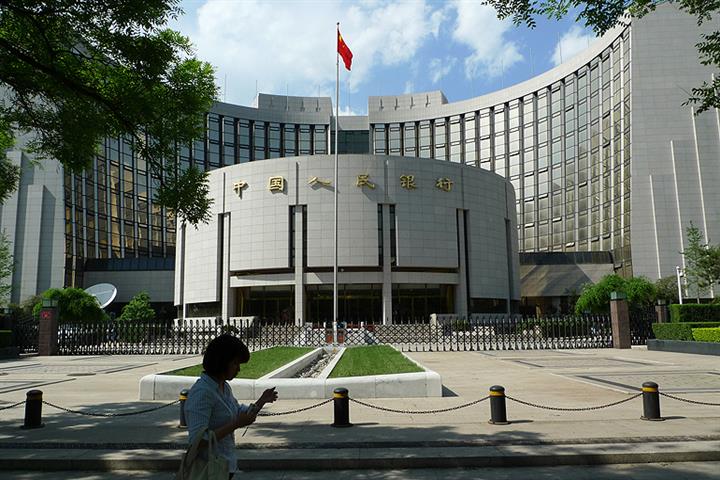 China’s Central Bank Report Reaffirms Prudent, Flexible and Moderate Monetary Policy
China’s Central Bank Report Reaffirms Prudent, Flexible and Moderate Monetary Policy(Yicai Global) Aug. 10 -- In its second-quarter monetary policy implementation report released yesterday, the People’s Bank of China reiterated its tendency to be prudent, stressing the flexibility, precision, rationality and stability of the policy.
The central bank said that it would adhere to implementing a normal monetary policy and do a good job in designing cross-cyclical policies.
Analysts interviewed by Yicai Global believe that so-called cross-cyclical adjustment will require the government’s macro policies to set aside policy space for future uncertainties. For instance, against a backdrop of conomic stability with good growth momentum, the PBOC’s surprise cut in the reserve requirement ratio in mid-July reflected the thinking on cross-cyclical policy adjustment.
Compared with the bank’s first-quarter report, the PBOC added the expression “to improve the long-term mechanism of the central bank to regulate the constraints of liquidity, capital and interest rate due to banks’ money creation” while also emphasizing “perfecting the money supply control mechanism.”
In addition, the report added the statement “strengthening the monitoring and analysis of uncertainties, such as fiscal revenue and expenditure, government bond issuance, and monetary policy adjustments in major economies, to further improve the farsightedness, flexibility and effectiveness of operations.”
Good Monetary Environment
The foundation for China’s economic recovery is not yet solid, which calls for further improvement in macro-policies, Wen Bin, chief researcher at China Minsheng Bank, told Yicai Global. It is necessary to create a good monetary environment for high-quality economic growth while maintaining reasonable and adequate liquidity.
The PBOC will continue to stabilize liquidity through open-market operations, the medium-term lending facility and other monetary policy tools, Wen noted, adding that there is still room and the possibility of another cut in the RRR in the current half.
The PBOC’s second-quarter report also set up a special column to elaborate on opinions about the relationship between the money supply and inflation, reaffirming that “hugely excessive issuance of money will inevitably lead to inflation, and the key to controlling inflation is the management of money.”
The report noted that China’s inflationary pressures are generally manageable, thanks in large part to the gradual return to normal money supply growth since May last year, well ahead of the rest of the world’s major economies.
The growth rate of China’s broad money supply, M2, was 8.6 percent at the end of this June, basically the same as before the outbreak of the Covid-19 pandemic. The figure basically matched the nominal economic growth rate, stabilizing prices from the macro level, it added.
The report stressed that the growth of money supply and social financing will be constant and basically in line with the nominal economic growth rate, essentially keeping the overall price level stable.
Controllable Inflation
Overall, inflationary pressure is generally manageable and there is no basis for long-term inflation or deflation as the consumer price index has risen mildly while the hike in the producer price index is short term, the report stated.
China’s consumer prices increased at a slower clip for a third month in July as food became cheaper and more coronavirus cases emerged, while producer prices rose at the fastest pace this year due to costlier oil and coal, according to data released by the National Bureau of Statistics yesterday.
The CPI, a main gauge of inflation, rose 1 percent last month from a year earlier, down from 1.1 percent in June and 1.2 percent in May. The producer price index, a measure of factory gate prices, jumped 9 percent, up from 8.8 percent in June and matching May’s increase.
On the whole, the PPI is expected to remain volatile amid a downward trend in the coming months as gains in commodity prices slow, Wen said. On the other hand, as food prices, including pork, continue to decline, the change in the CPI will be moderate during the year. Inflation is generally controllable, with limited impact on monetary policy.
On future policy direction, China Everbright Bank analyst Zhou Maohua said that the current priority tasks of the domestic economy are still pandemic control and prevention as well as support for domestic demand.
Upcoming policies, as a whole, are expected to be slightly looser and more structural policy support tools will be used to guide financial institutions to increase support for micro- and small-sized firms and private enterprises, Zhou added.
Editors: Tang Shihua, Peter Thomas